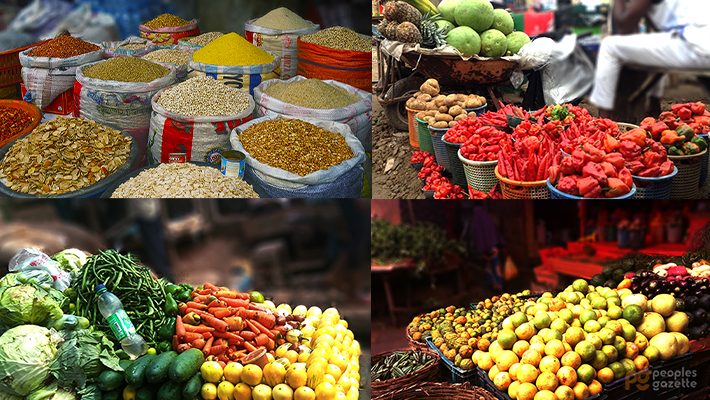719
Daniel Adaji
Food prices in Nigeria soared in the first quarter of 2025, contributing to the headline inflation rate climbing to 24.23 per cent in March, up from 23.18 per cent in February.
The National Bureau of Statistics data released on Tuesday revealed that the surge in food inflation, which reached 21.79 per cent year-on-year, has had a significant impact on the cost of living, putting further pressure on Nigerian households.
Staples like ginger, garri, rice, honey, and fresh pepper have seen considerable price hikes, adding to the strain on families already grappling with slow wage growth and rising economic uncertainty.
Food inflation also rose by 2.18 per cent month-on-month in March, an increase from February’s 1.67 per cent, signalling a continued upward trajectory in food prices.
This increase in food prices is occurring at a crucial time, as Nigeria approaches the planting season. Supply chain disruptions, logistical challenges, and insecurity in food-producing regions are exacerbating the situation, making food access even more difficult for many Nigerians.
Beyond food, Nigeria’s core inflation, which excludes volatile items like agricultural products and energy, also rose sharply, reaching 24.43 per cent year-on-year in March.
The month-on-month increase in core inflation stood at 3.73 per cent, up from 2.52 per cent in February, reflecting broader price pressures across both urban and rural areas.
The difference in inflation between urban and rural areas highlights the uneven impact of rising prices.
In urban areas, inflation surged to 26.12 per cent year-on-year in March, driven by a month-on-month rise of 3.96 per cent. Meanwhile, rural inflation stood at 20.89 per cent, with a month-on-month increase of 3.73 per cent, higher than February’s 1.16 per cent.
Despite some price stability for non-food goods, the depreciation of the naira in late March, alongside a rise in petrol prices, has added additional pressure on transportation and logistics costs.
As a result, analysts expect inflationary trends to persist, which may prompt the Central Bank of Nigeria (CBN) to adopt tighter monetary policies to curb the rising costs.



